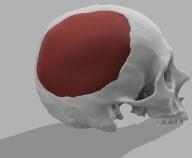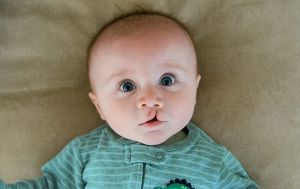
TMJ Surgery Treatment Services
The main goals of treatment for TMJ disorders are to reduce or eliminate pain and/or joint disturbances , and to restore normal mandibular function. Orthognathic surgery may affect or cause temporomandibular joint (TMJ) complaints. This study evaluated the need for TMJ surgery after orthognathic surgery. TMJ ankylosis and TMJ osteoarthritis are complex disorders of TMJ. These disorders involve distortion of normal anatomy of the joint.
...more
Orthognathic Surgery Treatment Services
Orthognathic surgery is a unique endeavor in facial surgery: a patient's appearance and occlusal function can be improved significantly, impacting the patient's sense of self and well-being. Successful outcomes in modern orthognathic surgery rely on close collaboration between the surgeon and the orthodontist across all stages of treatment, from preoperative planning to finalization of teeth bite / occlusion. Orthognathic surgery is the mainstay treatment to reposition the maxilla, mandible, or chin patients who are too old for growth modification (before adulthood) and for dentofacial conditions that are too severe for either surgical or orthodontic camouflage / treatment. The adjunctive procedures include an osseous versus alloplastic genioplasty, lipoinjection or suction lipectomy,
...more
Maxillofacial Trauma Treatment Services
Maxillofacial injuries are recurrent cause of presentations in an emergency department. They can vary from simple, common nasal fractures to gross communition of the face. Management of such injuries can be extremely challenging. These injuries are of highly vascular zone and they are complicated by the presence of upper airway and proximity with the cranial and cervical structures that may be involved alongwith. The non maxillofacial injuries management protocol of airway, breathing, and circulation is relatively well established whereas the injuries to this region have often been a subject for discussion.
...more
Hypertelorism Surgery Treatment Services
Orbital hypertelorism describes a birth defect where the distance between the eyes is larger than normal. It happens during prenatal development when the fetal face is forming. The eye sockets (orbits) develop laterally and rotate to their normal midline position in normal development. In this condition, the eye sockets fail to rotate into their normal position, resulting in wide-set eyes with extra bone between the eyes.
...more
Distraction Osteogenesis Treatment Services
Distraction osteogenesis (DO) has become an effective surgical technique for patients with jaw deformities as it provides skeletal advancement and expansion of soft tissue simultaneously. Moreover, maxillary DO is now recommended as one of the possible treatment choices for cases of maxillary retrusion, especially in patients with cleft lip and palate. Distraction osteogenesis (DO) generates new bone following a corticotomy or an osteotomy and gradual distraction. It is based on the tension-stress principle proposed by Ilizarov. A mechanical stimulation is created by gradual bone distraction which induces biological responses and consequently bone regeneration. A cascade of biological processes is involved in accomplishing it, which may include differentiation of pluripotential cells, angiogenesis, osteogenesis, and bone mineralization.
...more
Cranioplasty Treatment Services
Craniosynostosis is the condition in which early growing together (or fusion) of two or more bones of the skull may occur. A newborn baby’s skull is made up of many separate bones that are not fused together. The brain grows quickly in the first two years of life, so it is important that the skull bones remain open. Normally the bones fuse completely in the late teen years. Synostosis interferes with normal growth of the brain and skull leading to the premature closure of the sutures. It might lead to increased pressure inside the head, skull or facial bones which can change them from a normal, symmetrical appearance.
...more
Cleft Lip and Palate Surgery Treatment Services
The goals of treatment for cleft lip and cleft palate are to improve the child's ability to eat, speak and hear normally like other children and to achieve a normal facial appearance. The treatment care for children with cleft lip and cleft palate often involves a team of doctors and experts, including: Specialized Surgeons in cleft repair, ENTs, also called otorhinolaryngologists- Ear, nose and throat doctors Pediatricians Pediatric dentists/ Orthodontists Auditory or hearing specialists
...more
Orthognathic Surgery

palate surgery
Be first to Rate
Rate This